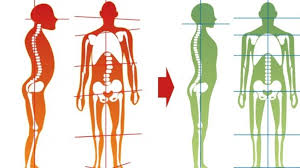
It is a disorder of movements in which the muscles will contract involuntarily, causing twisting or repetitive movements. The muscle spasms can be mild or severe, and might interfere with your performance of day-to-day tasks.
Dystonia
It is a disorder of movements in which the muscles will contract involuntarily, causing twisting or repetitive movements. The muscle spasms can be mild or severe, and might interfere with your performance of day-to-day tasks.
Types of dystonia:
· Focal dystonia: The condition can affect one part of your body
· Segmental dystonia: Two or more adjacent parts of the body
· General dystonia: All parts of your body
Symptoms:
· Occur during a specific action, such as handwriting.
· Worsen with stress, fatigue or anxiety.
· Become more noticeable over time.
Causes:
· Parkinson's disease
· Huntington's disease
· Wilson's disease
· Traumatic brain injury
· Birth injury
· Stroke
· Brain tumor or certain disorders that develop in some people with cancer (paraneoplastic syndromes)
· Oxygen deprivation or carbon monoxide poisoning
· Infections, such as tuberculosis or encephalitis
· Due to certain medications
· Heavy metal poisoning
Complications:
· Difficulty with jaw movement, swallowing or speech
· Physical disabilities
· Functional blindness from dystonia that affects your eyelids
· Pain and fatigue, due to constant contraction of your muscles
· Depression, anxiety and social withdrawal
Diagnosis:
· Blood or urine tests. These tests can reveal signs of toxins or of other conditions.
· MRI or CT scan. can identify the tumors, lesions or evidence of a stroke.
· Electromyography (EMG). This test measures the electrical activity within muscles.
Treatment:
· Carbidopa-levodopa (Parcopa, Sinemet). This combination medication can increase levels of the neurotransmitter dopamine.
· Trihexyphenidyl, benztropine. These medications act on other neurotransmitters.
· Tetrabenazine. This medication blocks dopamine. Side effects can include sedation, nervousness, depression or insomnia.
· Diazepam, clonazepam, baclofen. These drugs may reduce the neurotransmission.
Dystonia, disorder of movements, involuntary, muscle spasms.